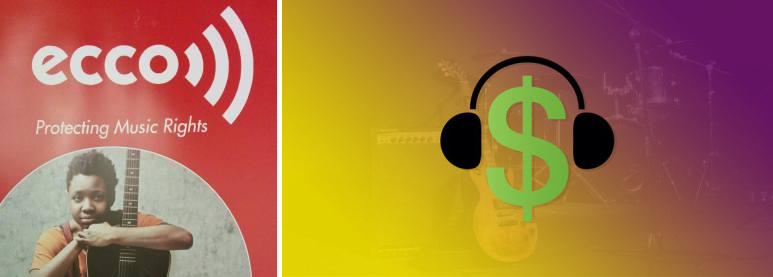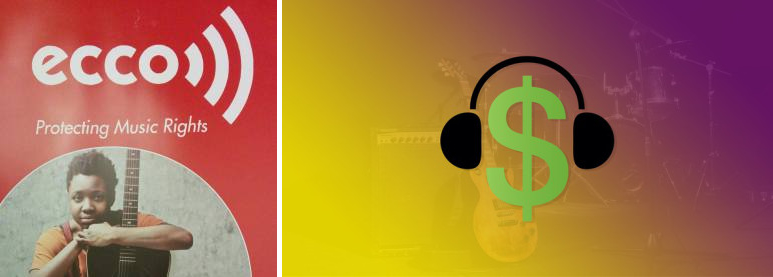In our last blog post, we sat with General Manager of the Eastern Caribbean Collective Organization for Music Rights (ECCO) Inc. Steve Etienne, to gain an overview and insight into the operations of the collective organization. Areas such as ECCO membership, licensing, funding and royalty distributions were highlighted. Today, we delve further to better understand the factors which affect the organization’s royalty collections and pay-outs.
One concern which has resounded among members is in regards to the value of royalties they receive, premised on a belief that more can be done by ECCO to ensure their earnings are more significant. In response to those concerns Etienne explains that as a collective management organisation, ECCO falls at the back end of the music industry, with its ability to impact royalty revenue being twofold:
Its attempts to ensure that public music users—such as radio and TV broadcasters, promoters of live events, hotels, restaurants, etc.—obtain the necessary license and remit royalties to ECCO. An ongoing task which ECCO consistently works through sensitization efforts, notifications and legal action where necessary.
Maintenance of minimum expense rates.
Otherwise, Etienne notes that the factors which directly affect a member’s royalty earnings occur at the front end of the music industry and are beyond the control of the organisation. Factors, he says, such as a songwriter’s ability to write songs which are regularly performed publicly or broadcast on radio and TV.
“If your music is not popular, if you don’t perform your works, if your works are not played on radio and television stations locally or internationally then you will not reap much,” says the ECCO General Manager. He adds that while music artists have the ability to negotiate the amounts paid from their live performances, royalty receipts are governed by ticket sales, how successful the show was and the dollar amount received at the gates. This amount (royalty from the licensed event) must then be shared equally amongst all the songs that were performed at that event—songs performed live at the event by and entertainments as well as songs played by the DJs.
This Etienne says, leads to a fluctuation in the amount of royalty dividend generated per song from a licensed event. “This can be as little as $0.20 as a dividend on one performance of a musical work. It really depends on how much is collected as gate receipts, how many songs were played and performed at that event and how many and what shares of those performed songs belongs to a specific songwriter.”
According to Etienne, ECCO tracks songs performed at live events through physical presence at the shows to obtain and compile set lists from live performers and through receipt of logs from the prompter of the event. Further he noted that in order to improve the efficiency and accuracy of this process the organisation is currently looking into the adoption of new technology which would allow them to connect directly into the music console at an event to digitally record and log every song played.
Meanwhile, Etienne says another factor which has affected the organisation’s ability to pay-out royalties steams from the fact that to date a number of members have not completed and provided ECCO with the necessary notification of works form for their compositions. Without this form and the accompanying mp3 recording of the musical work, it is impossible to determine who should be paid. As a result, Etienne says there is a backlog of funds pending distribution. In December 2015 ECCO issued a public announcement to all members advising of those unidentifiable performances for the period 2013 to 2014, with a call for members to make arrangements to review logs to determine whether any amounts are due to them. This he says is an ongoing process and members can still contact the office in order to review this log.
Lastly, Etienne explains that as a non-profit making, unfunded organisation ECCO’s expenditure must be deducted from the funds collected. As such he explains that the funds available for distribution to songwriters—(i.e. ECCO’s local members, as well as regional and international songwriters) is the net difference of the amounts collected from licenses and the organisation’s operating expenses.
“No one funds ECCO. What it collects and what it spends determines what it can pay out to its members. That has been the major challenge in this territory because we have had to spend a lot of revenue on sensitisation of the community, legal fees and general administrative costs,” says Etienne. To demonstrate this point, he provided the example of a prominent event in Grenada which the organisation was only able to collect license fees after legal action. In this specific case, he said a significant percentage of the earnings would have to be allocated towards the litigation costs, thereby reducing the surplus revenue available for royalty dividend, as such reducing the earnings potential of each songwriter who works were performed at this specific event.
Nonetheless, despite the noted challenges, Etienne says the organization is generating growth with a positive three year forecast. This he attributes to the small team of hard working staff who are focused on ensuring that all public music users obtain the necessary license and comply with the copyright act.











